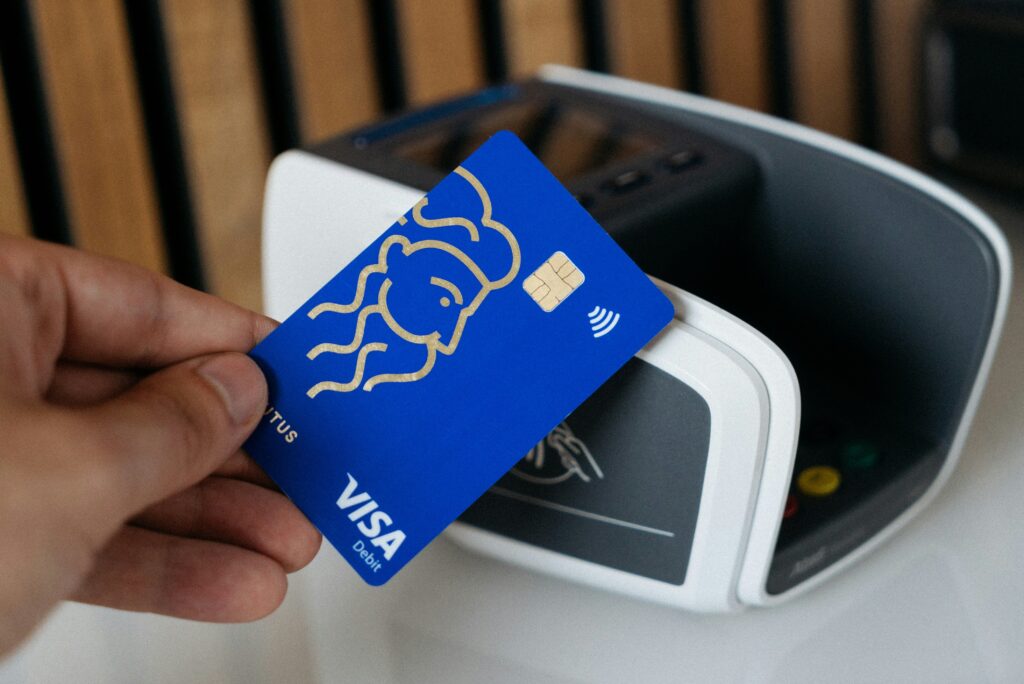Introduction
The job hunt can be one of the most stressful yet exciting experiences for international students. You’ve polished your resume, sent countless applications, and finally receive the call you’ve been waiting for—an invitation to a phone interview. But here’s the catch: it’s only five minutes long.
A 5-minute phone interview may seem short, but it plays a huge role in determining whether you’ll advance to the next stage of recruitment. For HR professionals, these quick calls are a way to screen candidates efficiently, verify information, and assess basic communication skills. For international students, they carry even more weight, because these few minutes are often the only chance to prove your suitability, clear up concerns about work authorization, and demonstrate strong communication skills despite cultural and language barriers.
So, what exactly happens during these lightning-fast conversations? What are the questions HR loves to ask, and how can you answer them confidently? More importantly, how can international students prepare to stand out in such a short window of opportunity?
This guide will explore everything you need to know about 5-minute phone interviews, including HR’s favorite questions, preparation strategies, cultural tips, mistakes to avoid, and sample answers tailored for international students.
Understanding the 5-Minute Phone Interview
Why Do Employers Use 5-Minute Calls?
For HR recruiters, time is everything. A single job posting can attract hundreds or even thousands of applications. To filter out unsuitable candidates quickly, HR professionals often rely on short screening calls. These serve several purposes:
- Check basic communication skills – Employers want to ensure you can communicate clearly in English.
- Confirm resume details – Verifying education, experience, or technical skills.
- Discuss work authorization – For international students, this is a critical point.
- Assess interest and professionalism – HR wants to see if you’ve done your research and are genuinely motivated.
Why They’re Challenging for International Students
- Language barriers: Non-native English speakers may feel nervous about speaking clearly under time pressure.
- Cultural differences: Some students may not be familiar with American/European-style interviews.
- Visa status concerns: Employers may hesitate if they don’t understand your work authorization.
- Time pressure: With only 5 minutes, long-winded answers can actually harm your chances.
The Key to Success
The secret is preparation and structure. With the right approach, even a short call can leave a lasting impression and secure you an invitation to the next round.
HR’s Favorite Questions (With Sample Answers for International Students)
Now, let’s dive into the most common questions HR asks during a 5-minute screening interview. For each, we’ll explain:
- Why HR asks the question
- How to answer it
- Sample answers tailored for international students
4: “What are your strengths and weaknesses?”
✅ Why HR Asks This:
HR wants to know if you’re self-aware and if you can honestly reflect on yourself. They’re also checking if your strengths align with the job and whether your weaknesses will create problems.
💡 How to Answer:
- For strengths, focus on skills that make you unique as an international student: adaptability, multilingual ability, cross-cultural communication, resilience.
- For weaknesses, pick something minor but real, then explain how you’re working to improve.
🎯 Sample Answer (International Student):
“One of my strengths is adaptability. Moving from [home country] to study in [host country] taught me how to adjust to new environments quickly. This also improved my teamwork skills, since I’ve collaborated with people from different cultural backgrounds. As for a weakness, I sometimes speak too fast when I’m nervous. To improve, I’ve been practicing slow, clear communication during presentations, and it’s already helping me become more confident.”
Q5: “Can you work flexible hours or relocate?”
✅ Why HR Asks This:
Many jobs require flexibility, especially in global companies with international teams. For students, HR wants to know if you’re open to relocation or different schedules.
💡 How to Answer:
- Be honest about what you can do.
- Show willingness without overpromising.
- If you can relocate, say so. If not, explain your limitations respectfully.
🎯 Sample Answer:
“Yes, I’m open to relocation and flexible schedules. During my academic projects, I often collaborated with teammates across different time zones, so I’m comfortable working with flexible hours. I understand that being adaptable is important in today’s global work environment.”
Q6: “When are you available to start?”
✅ Why HR Asks This:
Employers need to know your timeline. For international students, this may depend on graduation, OPT approval, or visa restrictions.
💡 How to Answer:
- Provide a clear timeline.
- Don’t be vague—employers value precise answers.
🎯 Sample Answer:
“I’ll be graduating in May and my OPT will begin shortly after. That means I’ll be available to start full-time work from June 1st. In the meantime, I’m open to part-time or internship opportunities if that’s helpful.”
Q7: “Why should we hire you over local candidates?”
✅ Why HR Asks This:
This is one of the toughest questions. Employers may worry about visa costs or cultural fit. They want to see if you can articulate your unique value.
💡 How to Answer:
- Highlight what makes you stand out as an international student.
- Emphasize global perspective, diversity, resilience, and bilingual skills.
- Avoid comparing yourself negatively with local candidates.
🎯 Sample Answer:
“I believe my international background gives me a unique perspective. I’ve adapted to new cultures, languages, and educational systems, which makes me resilient and resourceful. I’m also fluent in [languages], which allows me to connect with diverse clients and colleagues. Combined with my technical skills in [field], I think I can bring both professional expertise and a global mindset that adds value to your team.”
Cultural Communication Tips for International Students
Many international students have the skills needed for the job but struggle to communicate them effectively in a short interview. Here are practical tips:
- Practice Clear English
- Focus on pronunciation, not accent removal.
- Record yourself answering questions and listen for clarity.
- Use the STAR Method for Answers
- Situation, Task, Action, Result.
- Helps keep answers short and structured.
- Avoid Filler Words
- Words like “um, uh, you know, like” make you sound nervous.
- Replace them with short pauses.
- Handle Accents Confidently
- Don’t apologize for your accent.
- Speak slowly and clearly.
- Listen Actively
- Repeat the question in your mind before answering.
- If you didn’t hear, politely ask:
“Could you please repeat the question?”
Preparation Strategies for 5-Minute Phone Interviews
Because these calls are so short, preparation is everything.
1. Research the Company Quickly
- Review the company website and “About Us” page.
- Skim recent news articles.
- Check LinkedIn for company updates.
2. Prepare Your Elevator Pitch
Have a 30-second self-introduction ready. Structure:
- Who you are (degree + school).
- What you’ve done (experience/skills).
- What you want (career goals).
3. Practice Common Questions
Use flashcards or mock interviews. Ask a friend to role-play HR.
4. Keep Bullet-Point Notes
- Write down key points about yourself.
- Keep company facts nearby.
- Don’t read directly—use them only as reminders.
5. Set the Environment
- Take the call in a quiet place.
- Use earphones for better sound quality.
- Keep a glass of water nearby.
Common Mistakes International Students Make (And How to Avoid Them)
- Talking Too Much
- With only 5 minutes, long stories waste time.
- Solution: Keep answers concise (45–60 seconds max).
- Sounding Nervous or Robotic
- HR wants to hear personality.
- Solution: Practice but don’t memorize.
- Not Addressing Visa Status Confidently
- Employers want clarity.
- Solution: Be upfront and structured.
- Not Asking Any Questions
- Even in short calls, showing curiosity matters.
- Ask one small question:
“What are the next steps in the hiring process?”
- Poor Phone Etiquette
- Answering in a noisy place.
- Multitasking during the call.
- Forgetting to say “Thank you.”
Post-Interview Etiquette
Even a short interview deserves a professional follow-up.
- Send a Thank-You Email
- Keep it short and polite.
- Example:
“Thank you for speaking with me today. I enjoyed learning more about the position and I look forward to the possibility of contributing to your team.”
- Follow Up if You Don’t Hear Back
- Wait one week before sending a polite reminder.
- Prepare for the Next Stage
- The next round may be a longer video or in-person interview.
- Review technical or behavioral questions.
Extra Resources
- Practice Websites:
- Glassdoor for company-specific interview questions.
- Pramp and InterviewBuddy for mock interviews.
- English Communication Tools:
- Grammarly for grammar improvement.
- ELSA Speak app for pronunciation practice.
- Networking Tips:
- Connect with alumni on LinkedIn.
- Join student career groups at your university.
Conclusion
A 5-minute phone interview may feel like a small step, but it often determines whether you advance to the real interview stage. For international students, it’s both a challenge and an opportunity.
By preparing structured answers, practicing clear communication, and addressing visa concerns confidently, you can turn those few minutes into a strong first impression. Remember: HR isn’t expecting perfection—they’re looking for confidence, clarity, and professionalism.
So next time your phone rings for a screening call, take a deep breath, smile, and show them the value you bring as an international student. Those five minutes could be the start of your global career.




